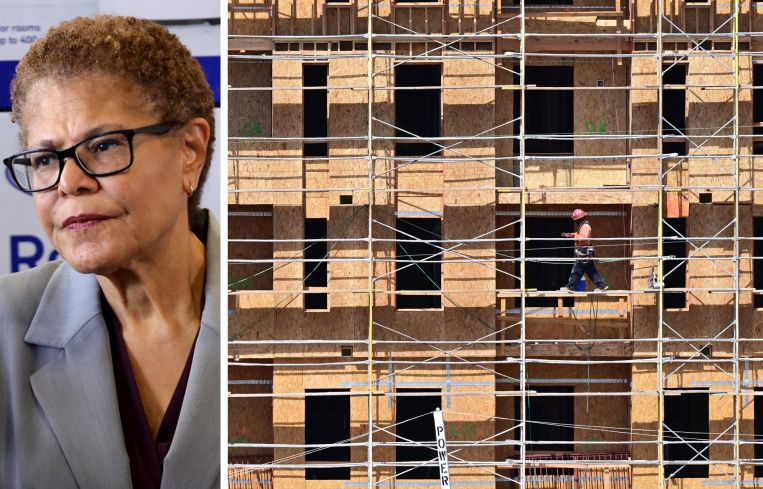L.A.’s ‘Mansion Tax’ Causes Steep Drop in Commercial Sales: UCLA
Measure ULA is generating just one-third of what officials initially estimated in tax revenue for the city
By Nick Trombola April 3, 2025 3:30 pm
reprints
Los Angeles’ controversial “mansion tax” has generated far less revenue than predicted largely because it’s also driving a serious decline in sales volume across the city, according to a new study by the University of California Los Angeles.
Measure ULA — a tax on high-dollar sales of all property types in the city enacted two years ago this month — has driven up to 50 percent decline in transactions above $5 million since the measure went into effect, per the study by the UCLA Lewis Center for Regional Policy Studies.
Officials initially estimated ULA would create up to $1.1 billion per year for the city, but it has collected just about $632.6 million as of March, most of it coming from sales of single-family homes.
The study analyzed L.A. County real estate sales data from 2020 to 2024 from two different angles, one on sale quantities, the other on prices. Bloomberg first reported the results.
The analysis on quantities found that the tax led to a 30 to 50 percent drop in the number of non-single-family deals over the past two years, per the study. The analysis on price meanwhile suggests that the chances a deal will occur above the tax’s price threshold have been reduced by 50 percent because of Measure ULA.
The measure imposes a 4 percent tax on all property sales in the city above $5.15 million, and a 5.5 percent tax on all deals above $10.3 million, above the base tax rate of $2.25 per every $500. The odds reduction translates to a 49 to 55 percent drop in such sales across the tax’s first 20 months, the researchers found.
Such reductions not only carry implications for lower housing and commercial development, but they also imply a decline in property tax revenue for the city. The study’s researchers, UCLA professor Michael Manville and the University of Southern California adjunct professor Mott Smith, estimated an annual property tax revenue loss of $25 million annually due to the tax.
“While ULA has real and visible benefits, there are signs that it also carries considerable, albeit less visible, costs,” Manville and Smith wrote in the study. “Measure ULA appears to be reducing higher-value real estate sales in L.A., particularly sales of properties other than detached single-family homes. A reduction in such sales is troubling, because these sales directly and indirectly drive construction of much-needed new housing, and help create new commercial and manufacturing opportunities for workers. These sales are also disproportionately important to the city’s overall fiscal health, because they largely determine the growth in property tax revenues.”
Measure ULA was effectively designed as a means to fund solutions to L.A.’s affordable housing and homelessness crisis, with revenue from the tax earmarked for the construction and renovation of affordable dwellings, as well as rental assistance and eviction defense. The L.A. City Council at the end of last year unanimously approved guidelines of how to spend part of the funds collected so far, totaling $168 million for the 2024-2025 fiscal year.
Yet Measure ULA has generated far less revenue than the city initially projected due to the severe drop in sales volume as investors attempt to avoid the tax. Sales volume elsewhere in L.A. County, as well as sales in L.A. below the tax’s threshold of $5 million, have not fallen nearly as much by comparison, according to UCLA’s study.
There’s also some recent indications that city officials are souring on the tax. L.A. Mayor Karen Bass at a press conference in early March said that her office was investigating a temporary pause on the tax as a means of helping Pacific Palisades residents who lost their homes in the L.A. wildfires earlier this year. But the mayor is apparently already having second thoughts, and it’s unclear how the city could suspend or remove the tax other than by a new voter referendum.
Nick Trombola can be reached at ntrombola@commercialobserver.com.



